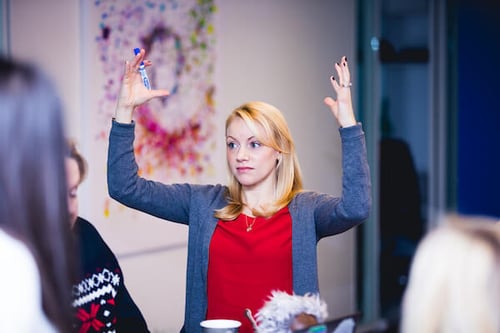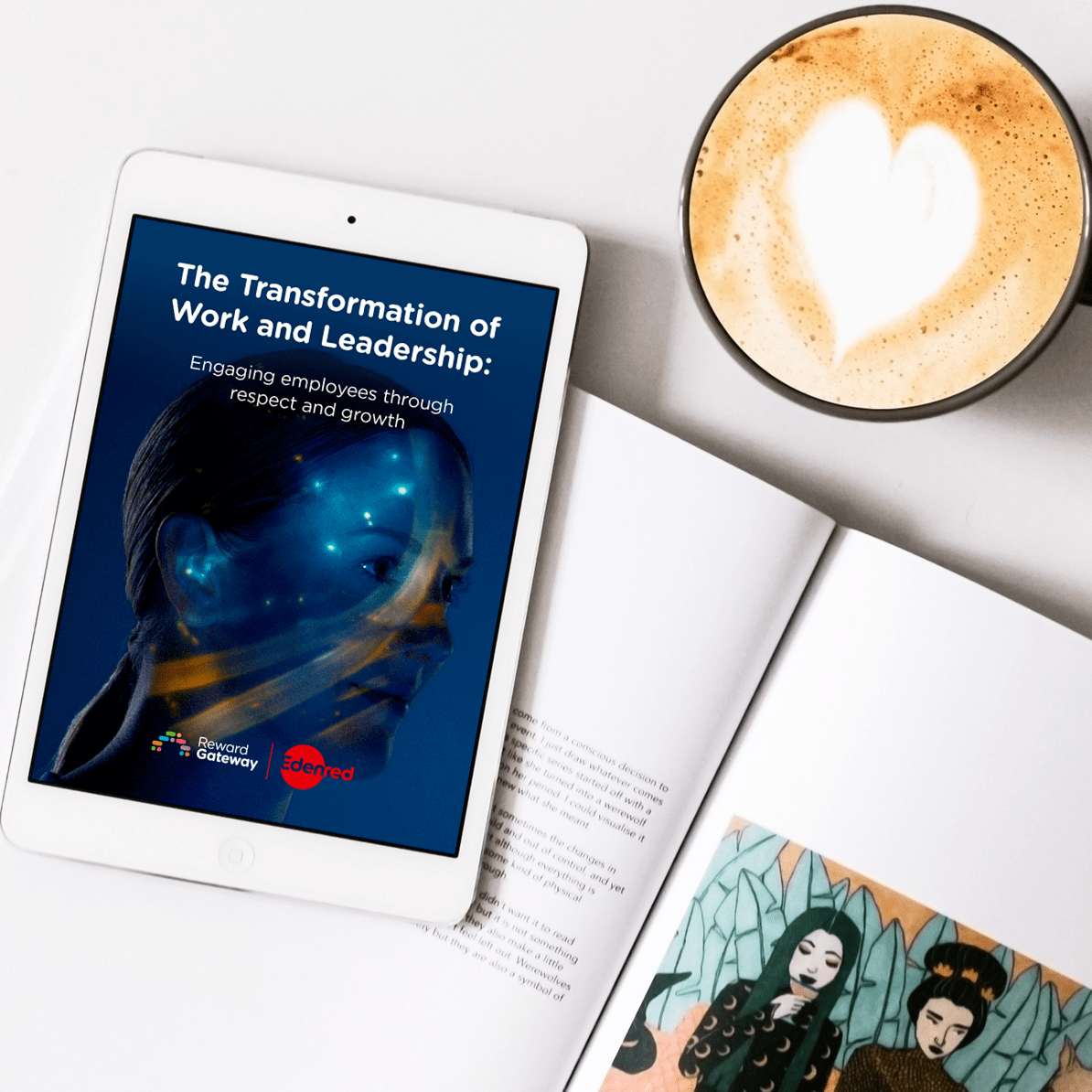.jpg?width=500&name=Cat%20Lewis%20-%20Robert%20Hicks-4%20(1).jpg)
5 min read
When it comes to whether HR is at the leadership table, the answer differs from company to company. The key argument for change at this level is that if people are your most important asset, then the team who look after that resource should be critically involved in the decision making of the business, and that’s created the birth of the Chief People or Chief Human Resources Officer.
There are broadly two main arguments when HR and businesses are asked whether HR should be part of the C-suite, or “having a seat at the table,” as the saying goes.
Traditionally, HR has been silo’ed to the “transactional processes” — things like payroll, hiring and firing, and pulling aside employees for an “HR chat.”
And so because of this, HR had little to no part in the commercial decision making in the business. Or, at least until they had proven their worth.
But now, many HR teams and individuals break down company silos and lead the charge, working with stakeholders on cultural transformation within their organization to add tangible business value — starting with a renewed focus on people.

But HR leaders can never truly move the needle on matters important to business, such as employee engagement, workplace culture or reducing turnover, unless they have the power to unlock budgets, resources and ideas to radically change their business.
So the question has become what comes first — the HR chicken or the HR egg? Do HR leaders deserve a seat at the table, or do they still have to prove their worth first?
Core reasons for giving HR a seat at the table
We’ve said it before: Your people are your best asset. Your business needs someone who guides the business on the people aspects of each decision.
Keeping decisions in black and white can be detrimental to the success of a business, if you don’t have someone who asks the tough questions like “how will this affect our people?,” or “how does this impact our ability to recruit the best people?,” and “will this make our people feel good about us, or not?”.
This is where it’s critical to have a people-based decision making framework against a commercial one, so you don’t run the risk of unintended negative people consequences.
Think, avoiding negative Glassdoor reviews, PR scandals or being known as the business that treats people badly. No one wants that on a company resume!
But while the people lens will help advance your company, there are other reasons why HR deserves their seat at the table. HR doesn’t technically represent any business unit, so while you may have the SVP of Sales, Marketing and Product arguing for the sake of their own teams and goals, HR can be an independent guide, making the best decision for the good of the business, and keep team biases out of the picture.
| You have someone who will measure the people impact, and help shape a decision to maximize the value and returns on a project. |
| You make the HR team more commercially minded as they have new and different aspects which they need to consider - they know how a decision will help the business be more profitable or not. |
| This means you get more commercially-oriented discussions in the HR team which will lead to better policies, process, advice, guidance and overall a stronger department. |
If you want to strengthen and empower your HR team and leaders, then allow them access to the really important decision making aspects of the business. They (and you!) will be stronger for it.

HR needs to earn their seat, not just get one
Respect should be earned, not just given. This is true in all circumstances, but especially in business.
Why should HR get a seat at the table if members aren't demonstrating great leadership, delivering on key objectives and generally acting as a well run team?
Promotions should go to those that deserve them, and that seat is a promotion, it is not given to all HR teams. This means HR should ask; what do I need to do to get the seat at the table; as a department, as a team, how does it need to behave, and what criteria of behaviors and attitudes does it need to show?
Sometimes, if HR reports to, say, a Chief Operating Officer or a Finance Director, it can feel like HR’s boss is “enough,” that they are representing HR’s mindset. After all, if you’re on the same team, isn’t that enough?
But HR brings a different viewpoint and, critically, examines leadership decisions under a people-centric lens to create balance among leadership teams.

If your Leadership Team is making a large number of redundancies, for example, HR can explain how that will impact overall company morale and how the business can mitigate an expected decrease in trust within the business and avoid increased turnover. That’s why it’s critical for HR’s role to continue to evolve so it can be involved in the strategic side of decisions that happen "at the table."
When HR can prove the commercial impact of people-centric decisions, the team will not only get that seat at the table, they will earn it.
As long as HR is delivering value to the business through strategic initiatives that add to the business’s overall goals — increased employee productivity and innovation, decreasing turnover and retaining best performers, for example — then HR professionals have rightly earned their seat at the top tier table. But if you’re not there yet, that’s OK.
The key is to come together with the rest of the leaders in the business and remain aligned in key objectives, and ensure that HR can impact those. Patience will be your friend.

 Robert Hicks
Robert Hicks



